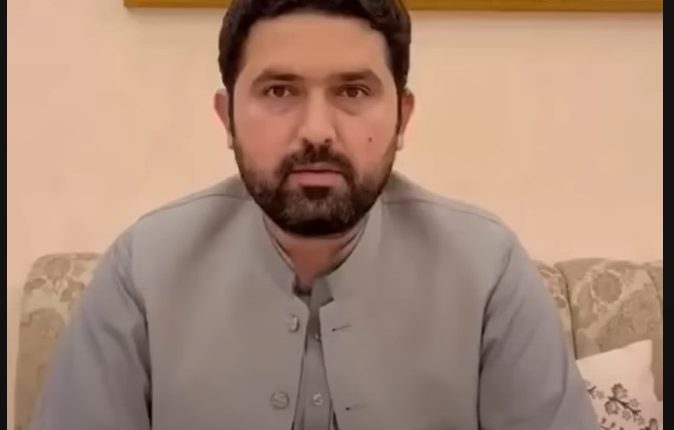By Syed Farooq Shah |
When a politician turns his anger toward the very institution that shields the nation, his words cease to be political opinion — they become a blow to national cohesion. Mr. Afridi’s recent tirade against Pakistan’s Armed Forces is not an isolated lapse of judgment; it is the latest episode in a familiar cycle of self-serving populism and institutional hostility that has come to define a troubling strain of politics in Pakistan.
A Calculated Assault on Unity
The Pakistan Army has long stood as the country’s strongest line of defense, whether on the frontiers or in the face of terrorism and disaster. To malign its integrity for the sake of partisan survival is not dissent — it is a calculated attempt to fracture the national consensus that binds the federation together. Afridi’s language echoes the tone of those who view political turbulence as opportunity, and national institutions as obstacles.
Such rhetoric plays directly into the hands of Pakistan’s adversaries, both domestic and foreign, who exploit every hint of division to weaken the state’s image and morale. At a moment when the region faces renewed volatility and when internal cohesion is vital, his words were not just irresponsible; they were dangerous.
The PTI Legacy in Khyber Pakhtunkhwa
Afridi’s political history provides the context. During the decade of PTI rule in Khyber Pakhtunkhwa, the party’s rhetoric of reform collided with a stark reality of inefficiency and erosion. Billions of rupees earmarked for health, education, and local development disappeared into untraceable schemes. Grand projects — from transport corridors to housing initiatives — stalled or inflated beyond recognition.
The much-publicized “police reforms” lost credibility amid political interference. Public accountability institutions, instead of strengthening transparency, became tools of convenience. Behind the slogans of “change” lay a pattern of centralised decision-making, unchecked corruption, and media spectacle. The province that was meant to showcase “Naya Pakistan” became an example of how populism without policy hollows out governance.
Populism Over Patriotism
Time and again, PTI’s political strategy has relied on confrontation — against the judiciary, against the Election Commission, and now against the Armed Forces. This deliberate antagonism seeks to convert institutions of state into rhetorical enemies. The goal is simple: sustain outrage to retain attention. Yet such theatrics corrode the very foundations of democracy.
Afridi’s statement is part of that continuum. By painting the defenders of Pakistan as villains, he seeks to cloak political failure in false heroism. But nations are not built on provocation. They are sustained by shared respect for those who serve and sacrifice in uniform.
A History of Provocation
This is not Afridi’s first descent into incendiary behavior. His tenure has been marked by clashes with administrative officers, verbal assaults against journalists, and inflammatory street rhetoric that blurred the line between protest and anarchy. After the fall of the PTI government, he joined the chorus of leaders who tried to translate political isolation into public chaos. The country still remembers the confrontations and attacks on state property that followed those calls — moments when ambition eclipsed patriotism.
Each such episode chips away at public trust, leaving Pakistan’s democracy weaker and more polarised. It also exposes the moral inversion at the heart of PTI’s politics: a willingness to vilify institutions rather than confront its own record of failure.
The Moral Dimension
There is an ethical line that separates criticism from sabotage. The Pakistan Army has buried more than 70,000 martyrs in the war against terrorism. Its officers continue to rebuild flood-hit villages, deliver relief in earthquakes, and defend every inch of this land. To disparage their intent is not free speech; it is moral bankruptcy. Political leaders who truly value democracy must uphold the dignity of those who defend it, not trade it for applause.
Accountability and Reform
Mr. Afridi owes the nation an unreserved apology. He must retract his words and acknowledge that national institutions are not pawns in partisan games. The PTI leadership, too, must stop romanticizing defiance and start addressing its record: the corruption, the economic waste, and the administrative paralysis that defined its years in office. Reform demands humility, not hostility.
The Road Ahead
Pakistan’s stability depends on a renewed compact between its institutions and its people. Civilians and soldiers alike have roles defined by the Constitution — roles that must be respected, not politicised. Political discourse must shift from accusation to accountability, from anger to agenda. The international community is watching Pakistan’s political climate closely; let it see a nation capable of self-correction, not one held hostage by reckless demagogues.
Afridi’s remarks will pass, but their echoes should not. They should remind Pakistanis that every careless word uttered against their defenders weakens the collective shield that guards this nation. History will remember the soldiers who stood firm in defense of Pakistan — and it will also remember those who, for the sake of fleeting relevance, tried to tear that defense apart with their tongues.
It is time for Pakistan’s citizens to see through the noise and expose the true face of a politics built on chaos. Our future lies not with those who burn bridges, but with those who build them — in unity, discipline, and faith.
—

